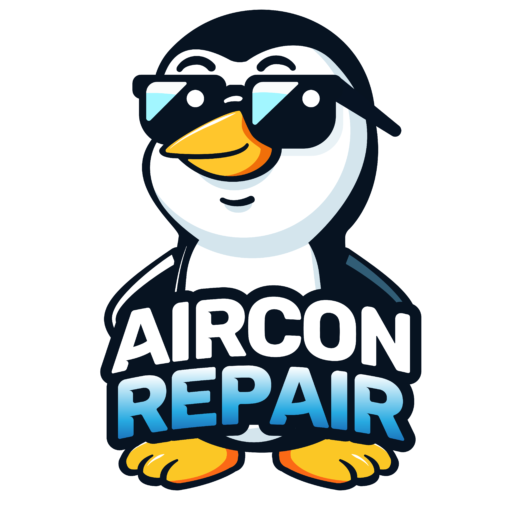Your air conditioner is essential for maintaining comfort, particularly during hot summer months. When it begins to show signs of trouble, addressing the issues quickly can help prevent costly repairs and improve energy efficiency. Common AC problems include insufficient cooling, strange noises, frequent cycling, and poor airflow. Identifying these signs early can make a big difference in avoiding bigger issues down the road. If your AC unit is struggling to keep up or acting unusually, it’s important to understand when to attempt a fix yourself and when to call a professional. Regular maintenance is also key to extending the lifespan of your system and preventing emergency breakdowns. In this guide, we’ll walk you through the most frequent AC problems, how to spot them, and when to reach out to an expert for repairs or replacement.
Signs of AC Problems You Shouldn’t Ignore
Knowing the signs of AC problems can help you avoid costly repairs down the road. From strange noises to fluctuating temperatures, identifying issues early can prevent bigger problems. Don’t wait until it’s too late. Learn how to spot common aircon repair issues and keep your system running smoothly.
Weak Airflow
If your AC is struggling to push air through the vents, it’s a sign that something isn’t working as it should. Weak airflow could stem from:
- Dirty Air Filters: Over time, filters accumulate dust and debris, restricting airflow.
- Blower Motor Issues: A malfunctioning motor might not generate the force needed to circulate air.
- Ductwork Leaks: Gaps or holes in the ducts can cause significant air loss before it reaches your rooms.
Blowing Warm Air
An air conditioner that blows warm air instead of cooling your space is a major red flag. Common culprits include:
- Low Refrigerant Levels: Refrigerant is essential for cooling, and a leak can deplete its levels.
- Compressor Malfunctions: The compressor is the heart of your AC. If it fails, the unit cannot cool effectively.
- Thermostat Issues: A miscalibrated thermostat might cause incorrect temperature readings.
Unusual Noises
Hearing strange noises from your AC? It’s not just an annoyance; it’s often a warning sign of internal issues:
- Grinding: This could indicate worn-out bearings in the motor.
- Squealing: Often caused by a loose or damaged belt.
- Rattling: Loose components or debris inside the unit can create this sound.
Odd Smells
Your AC should never emit unpleasant odors. If it does, investigate immediately:
- Musty Smells: Likely due to mold or mildew growth in the ducts or unit.
- Burning Odors: This could signal electrical issues, such as overheating wires or components.
Frequent Cycling
Does your AC turn on and off more often than usual? This frequent cycling might result from:
- Improperly Sized Unit: An oversized or undersized system can lead to inefficient operation.
- Thermostat Problems: A faulty thermostat might be misreading indoor temperatures.
- Clogged Air Filters: Reduced airflow can force the system to cycle more frequently.
Water Leaks
Water pooling around your AC unit is never a good sign. Common causes include:
- Blocked Drain Line: A clogged condensate drain can lead to water overflow.
- Frozen Evaporator Coils: When coils freeze and thaw, water can drip excessively.
- Refrigerant Leaks: These can cause both cooling inefficiency and excess moisture.
Rising Energy Bills
A sudden increase in your energy bills without a corresponding rise in usage often points to an overworked AC system. This can happen due to:
- Dirty Coils: Dust and grime on the evaporator or condenser coils force the system to work harder.
- Low Refrigerant: Insufficient refrigerant makes the unit inefficient.
- Aging System: Older AC units lose efficiency over time, especially without regular maintenance.
How to Prevent AC Problems
Proactive maintenance is essential for preventing unexpected breakdowns and ensuring your AC operates efficiently. Regular check-ups help detect issues early, extend the system’s lifespan, and maintain optimal performance, saving you from costly repairs and improving energy efficiency. Stay ahead with consistent care to keep your AC running smoothly. Here are some essential tips:
Schedule Regular Tune-Ups
Professional maintenance at least once a year helps identify and resolve potential issues before they escalate. During a tune-up, technicians will:
- Clean and inspect components.
- Check refrigerant levels.
- Ensure the system is running efficiently.
Change Air Filters Frequently
Replacing air filters every 1-3 months, depending on usage and indoor air quality, prevents clogs and promotes better airflow.
Inspect and Clean the Unit
Keep the outdoor unit free from debris such as leaves, dirt, and grass clippings. Ensure at least two feet of clearance around the unit for optimal performance.
Monitor Thermostat Settings
Use a programmable or smart thermostat to maintain consistent temperatures and reduce unnecessary wear on the system.
Address Issues Promptly
Don’t ignore warning signs. Addressing small problems early can save you from costly repairs and prolonged discomfort.
When to Call for Professional Help
While some minor issues can be resolved with basic maintenance, others require the expertise of a professional. Schedule an emergency AC repair if you encounter:
- Warm air blowing instead of cool.
- Persistent unusual noises.
- Water leaks or excessive condensation.
- Frequent cycling or difficulty maintaining the set temperature.
Why Professional AC Repair Matters
Attempting DIY repairs can sometimes worsen the problem or void your warranty. Hiring a certified HVAC technician ensures:
- Accurate diagnosis of the problem.
- Safe handling of refrigerants and electrical components.
- Long-term solutions to keep your system running efficiently.
Conclusion
Recognizing the early signs of AC problems can save you from discomfort and expensive repairs. Whether it’s weak airflow, unusual noises, or rising energy bills, addressing these issues promptly is crucial. Regular maintenance and timely professional assistance will keep your air conditioner in top shape, ensuring your home stays cool and comfortable all year round.
Don’t let minor AC problems snowball into major expenses. Contact a trusted HVAC professional today to keep your cooling system running smoothly!
